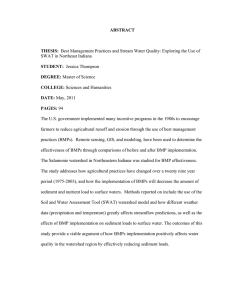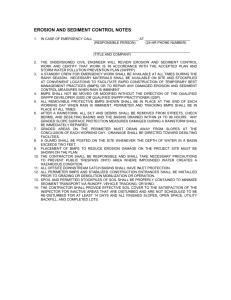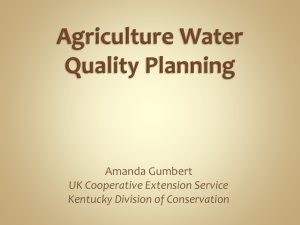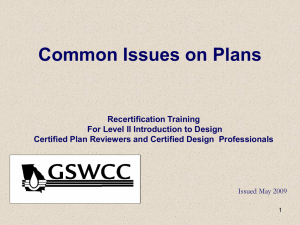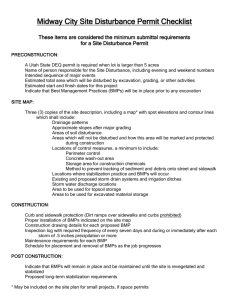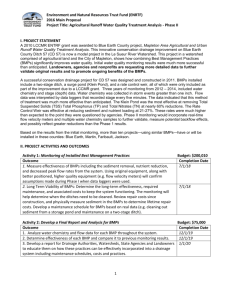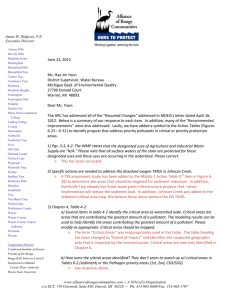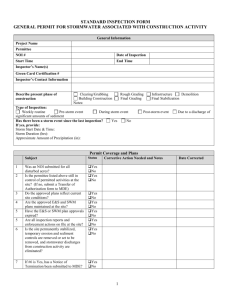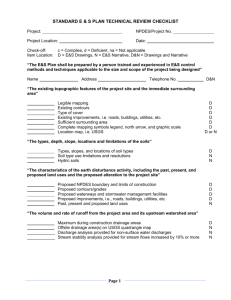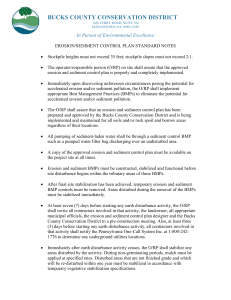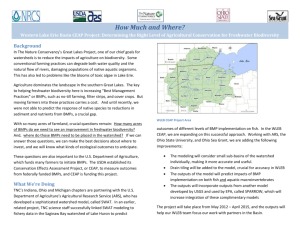Construction Sediment Control Plan Checklist
advertisement
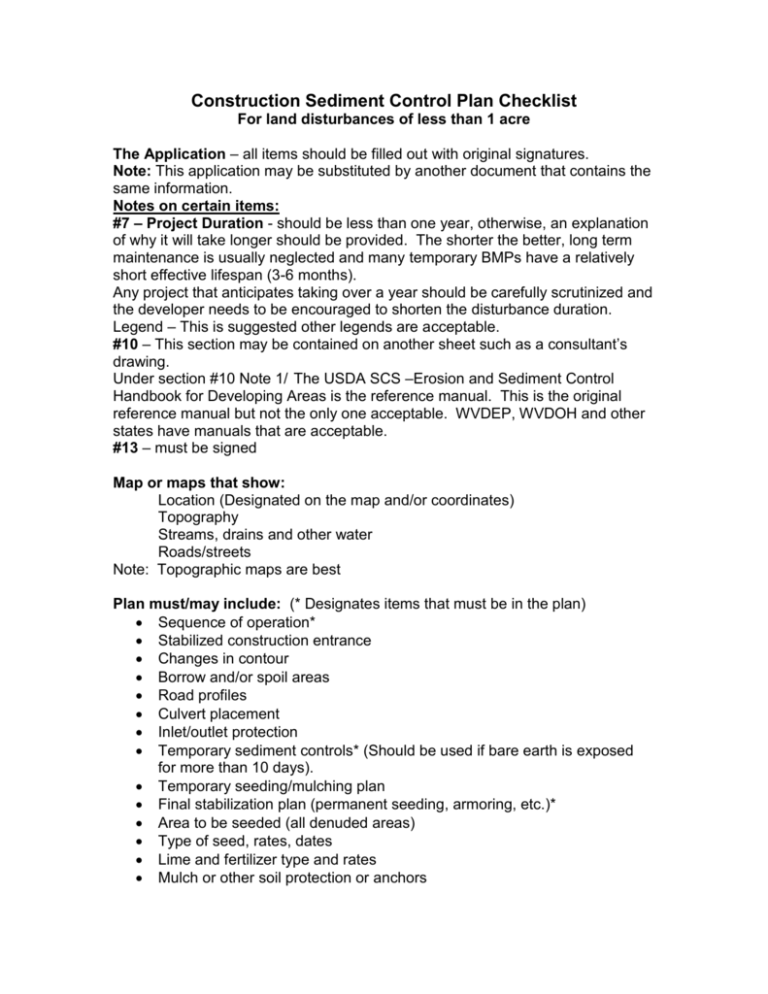
Construction Sediment Control Plan Checklist For land disturbances of less than 1 acre The Application – all items should be filled out with original signatures. Note: This application may be substituted by another document that contains the same information. Notes on certain items: #7 – Project Duration - should be less than one year, otherwise, an explanation of why it will take longer should be provided. The shorter the better, long term maintenance is usually neglected and many temporary BMPs have a relatively short effective lifespan (3-6 months). Any project that anticipates taking over a year should be carefully scrutinized and the developer needs to be encouraged to shorten the disturbance duration. Legend – This is suggested other legends are acceptable. #10 – This section may be contained on another sheet such as a consultant’s drawing. Under section #10 Note 1/ The USDA SCS –Erosion and Sediment Control Handbook for Developing Areas is the reference manual. This is the original reference manual but not the only one acceptable. WVDEP, WVDOH and other states have manuals that are acceptable. #13 – must be signed Map or maps that show: Location (Designated on the map and/or coordinates) Topography Streams, drains and other water Roads/streets Note: Topographic maps are best Plan must/may include: (* Designates items that must be in the plan) Sequence of operation* Stabilized construction entrance Changes in contour Borrow and/or spoil areas Road profiles Culvert placement Inlet/outlet protection Temporary sediment controls* (Should be used if bare earth is exposed for more than 10 days). Temporary seeding/mulching plan Final stabilization plan (permanent seeding, armoring, etc.)* Area to be seeded (all denuded areas) Type of seed, rates, dates Lime and fertilizer type and rates Mulch or other soil protection or anchors Best Management Practice maintenance schedule* The goal of an SCP is preventing any sediment from leaving the site and especially entering a watercourse. The use of BMPs and site disturbance methods are the means of accomplishing this goal. Determining if the proposed course of activity on the site is the job of SCP review. Sediment is by definition soil particles that have moved. Sediment control plans are part of all sites no matter the size. Less that one acre sites are voluntary in most places but some cities and counties require them for all sites. NPDES (phase 2) Notice of Intent (site registration) and a plan (kept on site) is required for 1 to <3 acre sites; sites of 3 acres and more require an NPDES permit. Submission of site plans, SCP and public notice required. There is no agricultural exemption for construction disturbances only field work. Sequence of operation: The site size is the actual site and any spoil areas that are to be used. 1. Establish temporary BMPs Note: these should be inspected weekly and/or after any substantial rainfall/runoff event. 2. Establish a construction entrance that is adequate to prevent tracking earth from the site. 3. Perform grading/earth disturbance Note: If a spoil area is established outside the boundaries of the site where those BMPs can not control sedimentation, it must also be protected by BMPs 4. Install other BMPs as needed 5. Finish grading as quickly as possible 6. Establish permanent BMPs (stabilization) 7. Remove remaining temporary BMPs and perform stabilization if needed (seeding/mulching) Response letter should include: Project description, size, location (town or nearby town, county and Conservation District) Acknowledgment referencing standards met (BMP manual) Reminder that the plan should be kept on site during operations Statement that state staff (WVCA and/or WVDEP) may visit Statement that acceptance of this plan does not mean all permit requirements are met and the applicant is responsible for other permits that may be needed A signed copy of the SCP application If the plan is rejected give the reason or reasons which may include too large a site, lack of required information, etc. Send the applicant an approval/rejection letter and a signed SCP copy Send the Conservation District an SCP copy, approval letter and site location
